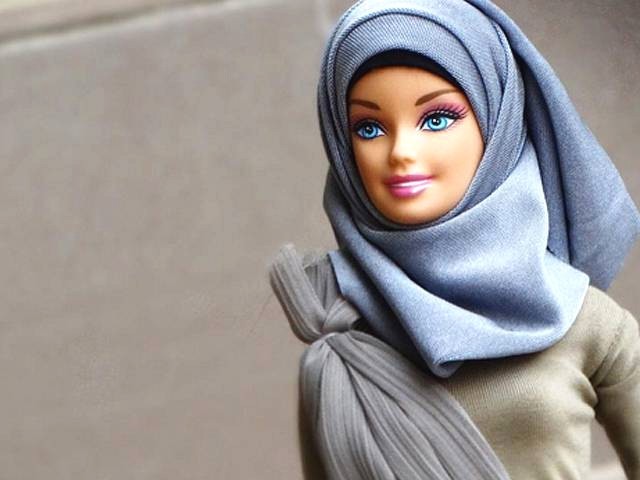http://www.pakistantoday.com.pk/2016/05/30/comment/powerful-icons/
Pakistani women need to see more role models
‘Chalo gurya gurya khalain!’ is a popular refrain amongst little girls when they wish to play with their dolls. It’s a game encouraged by parents since it fosters caring and nurturing traits. You may wonder: if dolls are able to foster such traits what else might they achieve, and how they and other things that have access to the public mind, icons, can be used to manipulate attitudes.
There is no doll as well known as the Barbie doll, the doll with an impossibly curvaceous figure. Ruth Handler the person who initiated the Barbie venture was an enterprising business woman. She gave Barbie a stupendous wardrobe, such as Lahore begums aspire to and often achieve. An exhibition in Paris at one time displayed 7000 designs for Barbie’s clothes, from bikinis to dresses to furs to you name it. There also followed other friends and family members and before long a boyfriend doll named Ken, also with a large wardrobe.
In a changing age the dolls changed accordingly. Barbie had always been available in blonde or brunette, but with changing ideas regarding race and body image Barbie soon came in brown or black complexions, tall or petite heights. As women became more confident about themselves the way Barbie looked out at the world was transformed; her eyes previously averted to one side looked straight ahead, viewing the world full on. The doll became an icon, just as actors and singers are icons, and it became clear that it had a symbiotic relationship with humans. Each gave the other certain messages, the traffic went both ways. Girls received some unrealistic messages regarding body image from Barbie but the doll that had started life as a ‘female model’ now also grew into the various professions women were beginning to get into. There were sportsman Barbies, she became a computer expert, an artist, scientist, manager…suggesting that it is possible for girls to be all of these, as they were indeed starting to be. Barbie became the way it is because women out there were doing all this. Even those with little beyond sheer style had a strong image such as Jackie Kennedy. And then, the BBC reports, back in 1992 a Barbie came onto the scene in a ‘Clintonesque electric-blue suit, way before any female candidate had ever made it onto the presidential ballot.’
Unfortunately, sites for potential icons in Pakistan, morning shows or plays available to the public on television, still reach out only to the worst western images and fail to reflect the Sharmeen Chinoys, Sherry Rehmans, Bilquis Edhis, or Naseem Zehras that Pakistan has managed to produce against all odds. These sites, the shows on television are stiff, with dumb simpering shrill dolls with silly blond hair and fussy clothes; female roles in plays on every channel consist of women incessantly weeping, walking with a shuffling gait, or being persecuted by a mother in law, husband or father. The themes consist of marriage, marriage and marriage again, its issues, or the lack of the state thereof. Not the smartest offering for a country that has a very long way to go before it can achieve even the semblance of progress, or for a society still mired in the middle ages.
People need icons. Not simply so they can applaud them but so that they can emulate them, their actions and whatever it is that makes them stand out. It is what Mohammad Ali and Nelson Mandela were to black people, Emmeline Pankhurst to female suffrage, and what Malala Yusufzai represents for women and all those who value education, freedom and gender equality. Manipulation is not only a good thing when used to create role models that have access to the public mind, child and adult alike, but it is possible and it is necessary.


